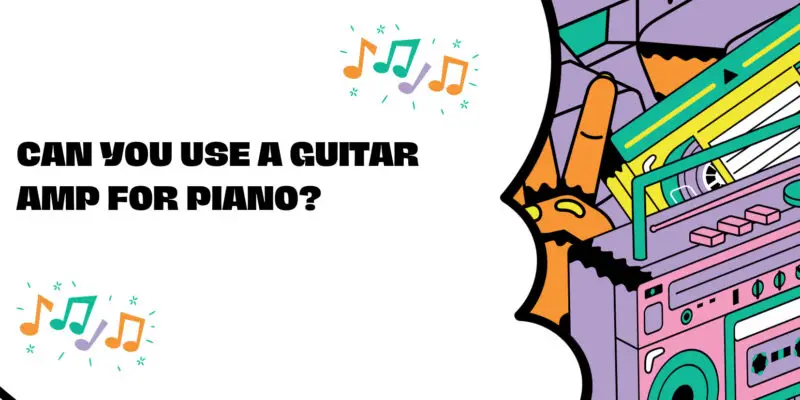Guitar amplifiers are designed to amplify the sound of electric guitars, shaping and enhancing their unique tonal characteristics. Pianos, on the other hand, produce sound in an entirely different manner, often through acoustic means or digital signal processing. This leads to a common question among musicians: Can you use a guitar amp for a piano? In this article, we will explore the feasibility of using a guitar amplifier with a piano and consider the potential benefits and limitations.
Understanding the Differences:
Before diving into whether a guitar amp can be used for a piano, it’s essential to understand the fundamental differences between these instruments and their amplification needs.
- Signal Type:
- Guitars produce an analog signal through pickups that capture the vibration of strings.
- Pianos can produce sound acoustically through vibrating strings, or digitally through synthesizers or digital pianos, which generate a digital signal.
- Frequency Range:
- Guitars primarily occupy the midrange frequencies, with variations in tone and timbre achieved through effects and amplifier settings.
- Pianos have a broader frequency range, encompassing deep bass notes, rich midrange tones, and bright high-frequency sounds.
- Amplification Requirements:
- Guitar amplifiers are tailored to accentuate the frequencies typical of guitars, focusing on overdrive, distortion, and coloration of the guitar’s natural tone.
- Pianos, whether acoustic or digital, require amplification that faithfully reproduces their wide frequency spectrum and dynamic range, aiming for accuracy and clarity.
Using a Guitar Amp for Piano:
While it’s not the most common choice, it is possible to use a guitar amp with a piano, but it comes with some caveats and considerations:
- Tone Shaping: Guitar amplifiers are designed to color and shape the sound of guitars. When used with a piano, they may not faithfully reproduce the piano’s natural tone, potentially leading to a less accurate or desirable sound.
- Frequency Limitations: Guitar amps may not adequately reproduce the full range of piano frequencies, particularly the deep bass and high treble notes.
- Clean vs. Distorted: Most guitar amplifiers emphasize overdrive and distortion, which are effects generally not needed for piano amplification. You may need to set the amp for a clean, undistorted sound.
- Volume Considerations: Guitar amps may not provide the necessary volume for larger venues or audiences, especially for acoustic pianos.
Better Alternatives for Piano Amplification:
- Keyboard Amps: Designed specifically for keyboards and synthesizers, keyboard amplifiers offer a more accurate and balanced amplification of piano sounds.
- PA Systems: A professional PA (Public Address) system is an excellent choice for amplifying pianos in larger settings. They provide versatility, power, and high-quality sound reproduction.
- Studio Monitors: In studio or recording environments, studio monitors can provide precise and accurate reproduction of piano sounds.
Conclusion:
While it is technically possible to use a guitar amp for a piano, it may not be the most suitable choice due to differences in signal type, frequency range, and amplification needs. To achieve the best sound quality and accuracy when amplifying a piano, it is recommended to invest in equipment designed specifically for keyboard instruments, such as keyboard amplifiers or PA systems. These alternatives will ensure that the nuances and full range of the piano’s sound are faithfully reproduced, providing a superior listening experience for both the musician and the audience.

